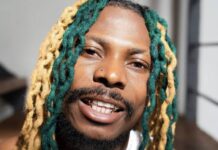By Stephen Adewale
Periodically throughout history of the world, there are events that literally overnight divert and define the subsequent course of that history. In the 20th century, for instance, the assassination of the Archduke Francis Ferdinand on June 28, 1914, would be one of such event, for it not only led to World War 1, World War II was effectively an extension of that disaster.
Then the dropping of atomic bomb on Hiroshima on August 6, 1945 changed forever the nature and threat of warfare if not all relations among nations.
As it happens, the 21st century, as young as it is, has experienced two of its own such event. First was the terrorists’ hijackings and crashing of airplanes into New York’s World Trade Centre on September 11, 2001. Since then, there has been universal agreement that the world has moved into what has become known as “the post-9-11 phase,” a recognition that the events of that day have had and will for some time continue to have repercussions that go far beyond the conventional acts of terrorism. Whatever those terrorists thought they were accomplishing on that September day, even they could not have imagined the impact their actions have had on the world.
The second phenomenon that has changed the fate of the world is the ongoing outbreak of coronavirus pandemic. Five months ago, no one knew that COVID-19 virus existed. Now, the virus has spread to almost every country, infecting 1,605,277 people officially, and many more who are not captured in the official documentation. It has crashed economies and showed the weak sides of the global health-care systems, jam-packed clinics and emptied public spaces. It has succeeded in separating citizens from their offices and their families. It has unsettled modern society on a scale that the 21st century society has never witnessed. Like World War II or the September 11 attacks, this plague has already engraved itself upon the world’s psyche.
It would be wrong to conclude that the pandemic arrived without prior notice. Indeed, many health institutions have been warning for some years now that a global pandemic of this scale was inevitable. In recent times, hundreds of health authorities have published books, written academic papers, and published newspapers opinion, warning of the possibility. Bill Gates, the second richest man in the world, according to Forbe’s Real-Time Billionaires rankings, has been telling anyone who cares to pay attention that the world was not ready for the plague that would eventually surface.
In fact, in October 2019, the Johns Hopkins Center for Health Security projected how the world would look like should a new-fangled coronavirus swept the international system. This was two months before the eventual appearance of COVID-19. And then one eventually did. Hypotheticals eventually became reality. “What if?” ended up becoming “Now what?”
As the coronavirus pandemic ravaged the world, a country that has shocked the entire world with the magnitude of its unpreparedness is the United States of America, supposedly the most powerful country on Earth today, and arguably in human history. So much of US’s supremacy originates from its size: it is one of the largest countries in the world by population and landmass, and is rich in natural resources and human capital. It could also, in many ways, be referred to as an island nation. And because it faces no major threats on its borders, it is at liberty to project power globally.
Among factors other than its scale, its military strength, and its global network of alliances, there is also the enormous advantage of America in scientific study, which also furthers and is an indication of its technical and economic superiority over most of the rest of the world.
An incomplete but insightful shorthand for this is the enormous lead in Nobel prizes from its origins in 1901 to 2019 by the US. The U.S has won 386 Nobels, mainly in science. Therefore, the U.S accounts for 4 percent of the world’s population but 36 percent of the Nobel prizewinners. This is the product of several factors: income, a culture and environment that promotes creativity, education, extensive research programmes sponsored by the state and private sector, and a political culture that has long drawn highly educated migrants.
All of these factors contribute to American wealth and therefore influence in more ways than just Nobel prizes, but the sheer number of U.S prizewinners is a sign of the American advantage.
Considering all these factors, many are of the conviction that if there is any country that should be ready in case of any pandemic outbreak, it should be the U.S. However, many individuals and institutions with the knowledge of what ails America, have been arguing for years that America might not be as impenetrable as it thought.
In his 2019 paper titled, “America Isn’t as Powerful as It Thinks It Is: The Era of Unilateralism is over – and Washington is the last to realize it”, Professor Stephen Walt laments that “what we are witnessing is a real-world test of two competing visions of contemporary geopolitics. One version sees U.S power as essentially undiminished and believes that a combination of material capabilities, favorable geography, and entrenched institutional capabilities will allow it to pursue an ambitious and revisionist foreign policy at little cost and with a high probability of success. The second version—to which I subscribe—sees the United States as very powerful and in a privileged position (for various reasons) but also believes there are limits to U.S. power”.
Part of the areas in which Stephen Walt believes the American power is getting weakened is in the area of weak health systems.
Michael Beckley, an associate professor of political science at Tufts, is one of those who ardently believe that this is the era of the U.S. as sole superpower, and that the country’s domination of the global order should continue for decades, at least. In his recent book titled ‘Unrivaled: Why America Will Remain the World’s Sole Superpower’, Beckley documented the multitude of U.S. strengths and its rivals’ many weaknesses. However, he was quick to point out that America’s power could wane “due to domestic political divisions and corruption. He also pointed out that “Institutionally, the United States is a mess.”
In his address to the members of the U.S Department of Health and Human Services in 2005, President George Bush argued that “it is vital that our nation discuss and address the threat of pandemic flu now. There is no pandemic flu in our country or the world at this time, but if we wait for a pandemic to appear, it will be too late to prepare. Scientists and doctors cannot tell us where or when the next pandemic will strike or how severe it will be. But most agreed, at some point, we are likely to face another pandemic. A pandemic is a lot like a forest fire; because if caught early, it might be extinguished with limited damage. If allowed to smolder undetected, it can grow to an inferno that spreads quickly beyond our ability to control it.
During his Presidency, Barack Obama also raised the awareness on the fact that Americans are not doing enough in terms of preparing for the outbreak of a pandemic. In one of his numerous address to the members of Congress in 2014, Obama argued that:
“We have to put in place infrastructure not just here at home, but globally that allows us to see it quickly, isolate it quickly, respond to it quickly. We have to be ready to tackle a pandemic so that if and when a new strain of flu like the Spanish flu, crops up five years from now or a decade from now, we have made the investments and we’re further along to be able to catch it.
There may and likely will come a time in which we have both an airborne disease that is deadly, and in order for us to deal with that effectively, we have to put in place an infrastructure- not just here at home, but globally. It is not just insurance, it is knowing that down the road, we are going to continue to have problems like this, particularly in a globalized world, where you move from one side of the world to the other in a day.”
All these awareness, notwithstanding, the United States policy makers remained complacent, having the false hope that America has what it takes to weather the storm, while many have erroneously believed that a day would never come that the world would have to pass through this phase.
As a prove to how complacent the U.S has become, the 2019 Global Health Security Index, supposedly a report card that grades every country on its pandemic preparedness, the United States has a score of 83.5—the world’s highest. Rich, strong, developed, U.S is hypothetically expected to be the readiest of nations on earth. Unfortunately, that illusion, delusion and misconception, have been shattered. Despite months of advance warning as the virus spreads in other countries, when America was finally tested by the coronavirus pandemic, it failed woefully.
By the end of March, the coronavirus had killed more Americans than the September 11 attacks. By the first weekend in April, the virus had killed more Americans than any single battle of the April 2nd, 1861 to April 9th 1865 American Civil War. By Easter Sunday, it may have killed more Americans than the June 25th, 1950 to July 27th, 1953 Korean War. On the present trajectory, it will kill, by late April, more Americans than November 1st, 1955 to April 30th, 1975 Vietnam war.
Having earlier promised that casualties could be held near zero, American leaders now claim they will have done a “very good job” if the toll is held below 200,000 deaths.
The coronavirus pandemic has laid bare once again, the incomplete nature of the American formidability. It has blown open the great distance between the realities of life and death in the United States, and the values pronounced and articulated by its founding fathers.
In its recent publication, the New York Times laments that over the past half century, the fabric of American democracy has been stretched thin. The nation has countenanced debilitating decay in its public institutions and a concentration of economic power not seen since the 1920s.
While many Americans live without financial security or opportunity, a relative handful of families holds much of the nation’s wealth. Over the past decade, the wealth of the top 1 percent of households has surpassed the combined wealth of the bottom 80 percent.
“It is a nation in which enduring racial inequalities, in wealth and in health, are reflected in the pandemic’s death toll. In Michigan, where the coronavirus hit early and hard, African-Americans make up just 14 percent of the state’s population, but 40 percent of the dead,” the paper concluded.
All these examples show that the United States of America was bedridden and indisposed long before the coronavirus reached its borders.
A major divide divides wealthy Americans, who completely enjoy the advantages of living in the richest nation on earth, from the increasing portion of the population whose lives lack stability or any real hope of change.
Last year for example, one of America’s richest, Kenneth Griffin paid $238 million for a luxury apartment overlooking Central Park in New York. According to Griffin, his plan is to sleep over in the house whenever he comes to New York. And this happens daily in a country where 10.9 million American families are barely able to afford a home. More than half of their money is spent on rent, while they economise daily on food and health care. And it is disturbing to realise that half a million Americans are homeless on any given night.
According to Brookings Institution, an American research group founded in 1916, the chances of rising in the United States are in decline for those at the end of the ladder. More than 90 per cent of Americans born in 1940 earned more than their parents earned at the same age by the time they turned 30. Yet by the age of 30, just half of those born in 1980 are making more than their parents.
Another major sign of weakness also lies in the fact that American educational system is no longer as golden as it used to be, as millions of children lack reliable internet access. Kids, who are fairly healthy from the coronavirus itself, are particularly at risk from the plague’s economic fallout. Public schools are one of America’s great engines of equalisation. However, Phoenix Institute, an educational organisation, discovered that the move to online learning as a result of coronavirus pandemic, means that current social differences matter more as many students are experiencing difficulties logging in from their various homes.
This indeed is a unique age. History and global statistics show that United States of America is the most powerful among all the countries that had led the world in past civilizations. Today, the United States accounts for 25 percent of global income, 35 percent of world investment, and 40 percent of global military spending, with 5 percent of the world’s population. It is home to nearly 600 of the 2,000 most profitable companies in the world, and 50 of the top 100 universities. It has sixty-eight loyal and dependable powerful allies, and it is the only country on earth that can fight numerous wars outside its home region, with 587 bases scattered across forty-two countries in strategic geopolitical zones across the world.
This has made Paul Kennedy, Yale historian, who published a successful analysis comparing great powers over the past five hundred years to conclude that: “Nothing has ever existed like this disparity of power; nothing.” The United States is, quite simply, “the greatest superpower ever.
However, like Michael Beckley argued, “institutionally, the United States is a mess” and this institutional mess has led it to its ongoing health crisis.
Yet one thing is certain, despite the ominous forecasts, the world will return to normal, one day. Various countries in the international system will eventually recover, children will return to their various schools, businesses will reopen, stock will rise again, bars and cafeterias will witness life again, and the global citizens will resume their invasion of one another’s personal space.
What is also evident is that the way the world will look at American leadership in the post-pandemic era will never again be the same. Its military power nonetheless.
Stephen Adewale is a fellow of the American Council of Learned Society and currently serves as the Director of Africa Dialogue Mission, Nigeria











I live America but I think President Trump ignored good counsel because of his lantent negative opinion about the intelligence team of his dear America and the immediate past President of the US. Here we are with do many nuts in the fire! How do we stop some of these nuts from getting burnt?
Thank you Mr. Stephen Adewale for this evidence based, unbiased observation of the American unpreparedness of a global pandemic despite repeated warnings and pointers to an eminent pandemic. On reading through the lines, it seems there is either a prior knowledge of this particular pandemic or that by reason of past historical records, it was necessary to make such accurate and certain pointers such as what Bill Gates, George Bush and Barrack Obama said…Obama even said Five years from now..and it is here with us. I strongly agreed that the institutions are weakened by internal political disagreement. Every strong man has a weakness than brings him to his knees..America though a superpower is vulnerable to a man made virus…The rich also cry.